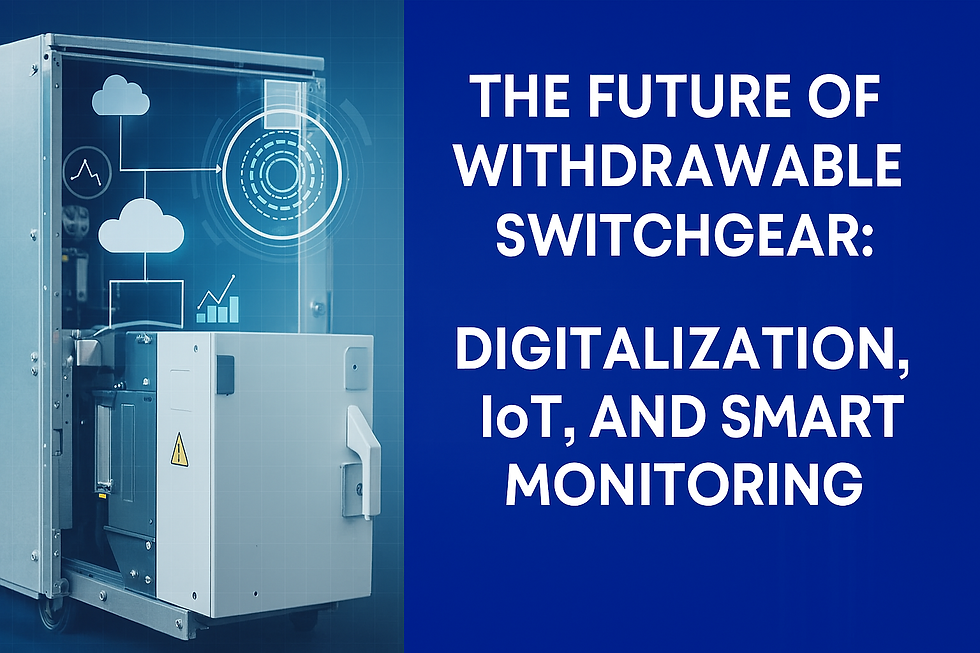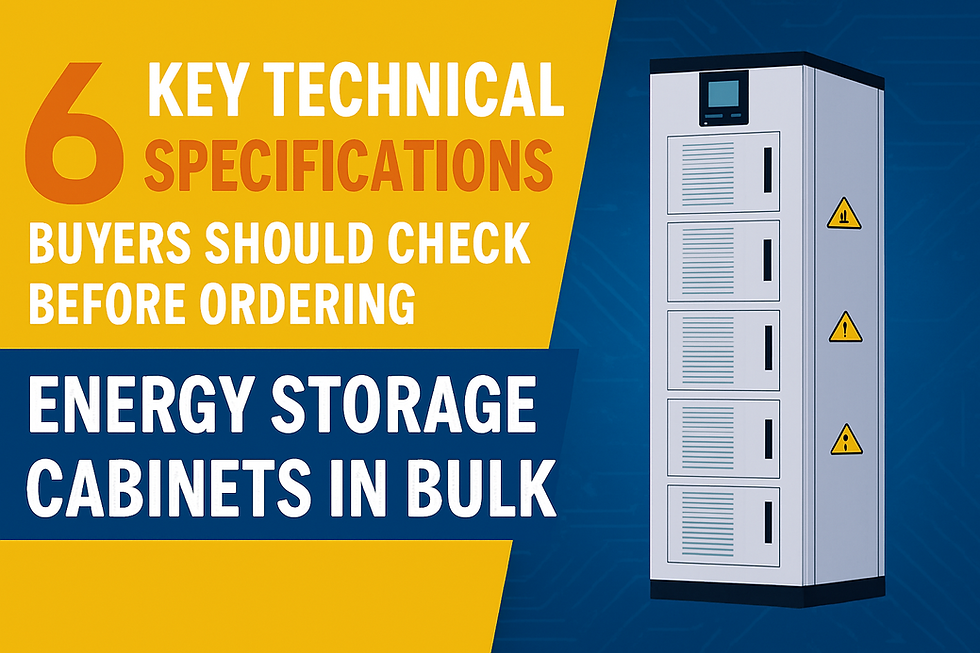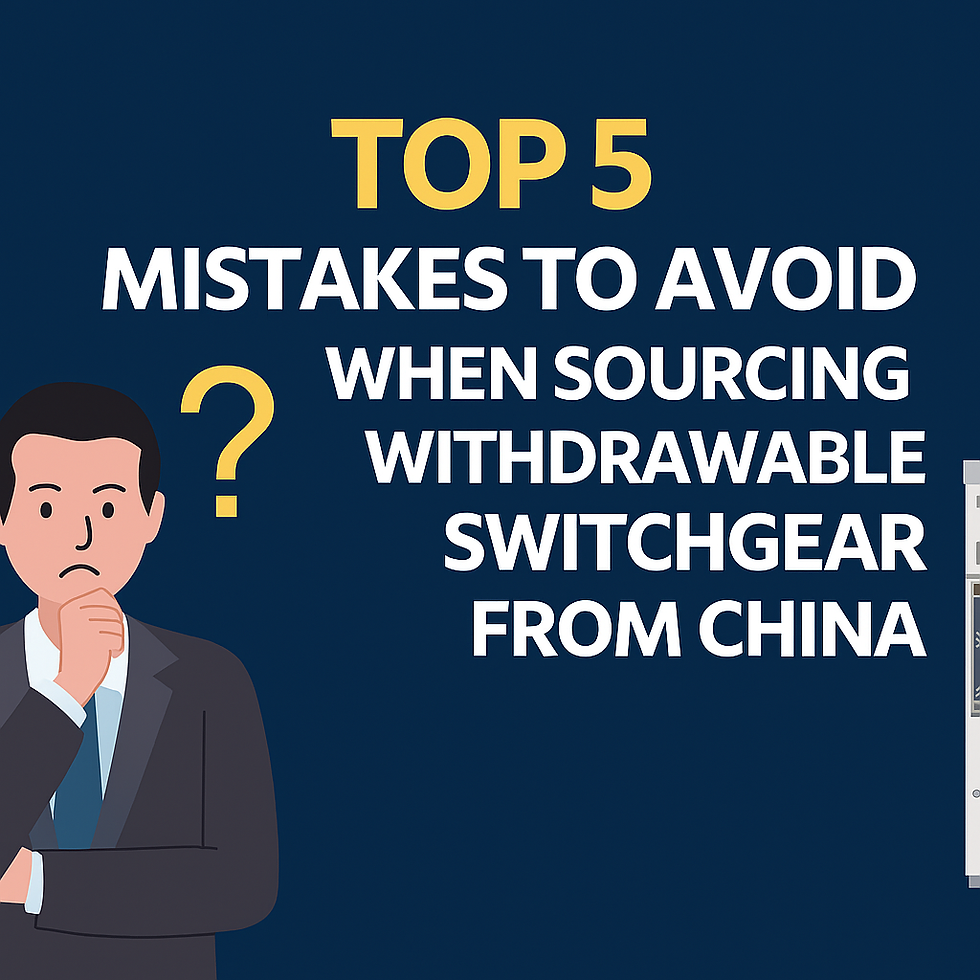The Best Cooling Systems for High-Capacity Storage Cabinets
- bzpowereq
- Mar 24
- 4 min read

If you’ve ever dealt with high-capacity storage cabinets—whether in a data center, industrial lab, or telecom facility—you know how quickly heat can become a problem. Overheating doesn’t just slow down equipment; it can fry circuits, erase critical data, or even start fires. I’ve spent years researching and testing cooling solutions, and in this guide, I’ll walk you through the best options to keep your cabinets running smoothly. Let’s dive in.
Why Cooling Systems Are Non-Negotiable
High-capacity cabinets house sensitive equipment like servers, medical devices, or industrial controllers. Without proper cooling, heat builds up fast. I’ve seen servers shut down mid-operation, lab samples ruined, and costly repairs pile up. The right cooling system isn’t a luxury—it’s insurance for your equipment’s lifespan and your peace of mind.
Where Cooling Matters Most:
Data centers: Server racks generate relentless heat.
Medical storage: MRI machines and lab equipment need stable temps.
Industrial automation: Controllers and robots overheat in cramped spaces.
Telecom cabinets: 5G infrastructure demands efficient cooling.
If you’re working with an energy storage cabinet supplier, ask them about integrated cooling solutions upfront. Many now offer tailored systems to match your cabinet’s specs.
Active vs. Passive Cooling: What Works Best?
Cooling systems fall into two categories: active (powered) and passive (natural). Let’s break them down.
1. Active Cooling Systems
These use energy to force heat out of cabinets. They’re ideal for high-heat environments.
Air Conditioning UnitsThink of these as mini-fridges for your cabinet. Centralized ACs handle large setups, while portable units work for smaller spaces. Schneider Electric’s models, for example, adjust cooling based on real-time temps.
Liquid CoolingLiquid absorbs heat 1,000 times faster than air. Systems like APC’s InRow pump coolant directly to hot spots. Perfect for data centers with dense server racks.
Thermoelectric CoolersThese silent, compact units use electricity to transfer heat. They’re great for labs or offices where noise matters.
2. Passive Cooling Systems
These rely on natural airflow or materials to dissipate heat. They’re cheaper but less powerful.
Heat Sinks and Vents
Simple metal fins or vents let heat escape passively. Rittal’s TopTherm fans add basic airflow without breaking the bank.
Phase-Change Materials
Wax or salt compounds absorb heat as they melt. Niche but useful for remote cabinets without power access.
How to Pick the Right System: 5 Key Factors
I always tell clients to focus on these five aspects:
Heat Load
Calculate your cabinet’s wattage (equipment specs × hours used). A 500W setup needs at least 1,700 BTU/hr cooling.
Energy Efficiency
Look for ENERGY STAR ratings or variable-speed fans. Vertiv’s Liebert PDX, for instance, cuts energy use by 30% with adaptive cooling.
Noise
Skip jet-engine decibels in quiet spaces. Thermoelectric coolers or Kooltronic’s low-noise fans are lifesavers.
Scalability
Opt for modular systems if you plan to expand. APC’s InRow scales seamlessly as your storage grows.
Budget
Passive systems cost less upfront, but active ones save money long-term. Liquid cooling’s ROI shines in high-heat zones.
My Top Cooling System Picks for 2024
After testing dozens of models, these five stand out:
IoT-enabled, energy-efficient, and built for heavy-duty use. Ideal for mixed environments.
Vertiv Liebert PDX
A data center favorite. Precision cooling with humidity control.
APC InRow Liquid Cooling
Handles extreme heat in tight spaces. Easy to scale.
Rittal TopTherm Fans
Affordable active cooling with whisper-quiet operation.
Kooltronic Passive Kits
Eco-friendly and low-maintenance for moderate needs.
Quick Comparison
System | Best For | Noise Level | Price Range |
Bz Power EQ | Large data centers | Moderate | $$$ |
Vertiv Liebert PDX | Precision cooling | Low | $$$$ |
APC InRow | High-density heat | Moderate | $$$$ |
Rittal TopTherm | Budget setups | Low | $$ |
Kooltronic Passive | Low-power needs | Silent | $ |
Installation Tips You Won’t Regret
Even the best system fails if installed poorly. Here’s what I’ve learned:
Maximize Airflow
Keep cabinets at least 4 inches from walls. Use baffles to direct airflow and avoid “hot zones.”
Location Matters
Place cabinets away from windows or heaters. If your energy storage cabinet supplier offers site assessments, take them up on it.
Monitor Relentlessly
Pair your system with IoT sensors (like Siemens’ Climaveneta) for real-time alerts.
Maintenance Checklist
Clean filters monthly—dust cuts efficiency by 20%.
Inspect coolant levels in liquid systems quarterly.
Upgrade fans or ducts if you add more equipment.
Real Success Stories
A Texas data center slashed downtime by 40% after switching to BZ Power EQ's liquid cooling.
A Boston hospital preserved $2M in MRI gear using Schneider’s AC units during a heatwave.
Both cases shared one lesson: Match the cooling system to your exact needs.
What’s Next in Cooling Tech?
AI-Driven Systems predict failures before they happen.
Solar-Powered Coolers cut energy costs (hello, green tech!).
Modular Plug-and-Play Units let you customize cooling as you grow.
Final Thoughts
Choosing a cooling system isn’t just about specs—it’s about protecting your investment. Start by calculating your heat load, then balance efficiency, noise, and budget. Whether you’re working with an energy storage cabinet supplier or retrofitting old cabinets, the right cooling solution is out there.
Stay cool, and don’t let overheating burn a hole in your operations—or your wallet.




Comments